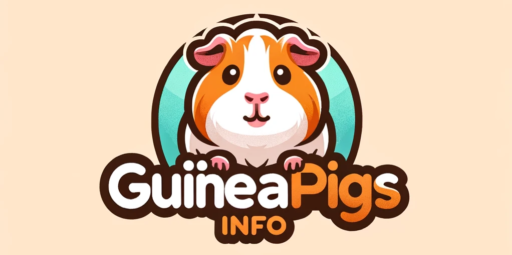Food & Diet
Can Chinchillas Eat Guinea Pig Food?
Chinchillas and guinea pigs are two adorable small pets that are often mistaken for each other. While they may have some similarities in size and appearance, they have different dietary requirements. Many chinchilla owners wonder if it is safe to feed their furry friend guinea pig food. In this article, we will explore the topic of whether or not chinchillas can eat guinea pig food, and what potential risks and benefits it may have.
Seemore: Can Guinea Pigs Eat Zucchini? – Health Benefits And Drawbacks
Contents
Outline:
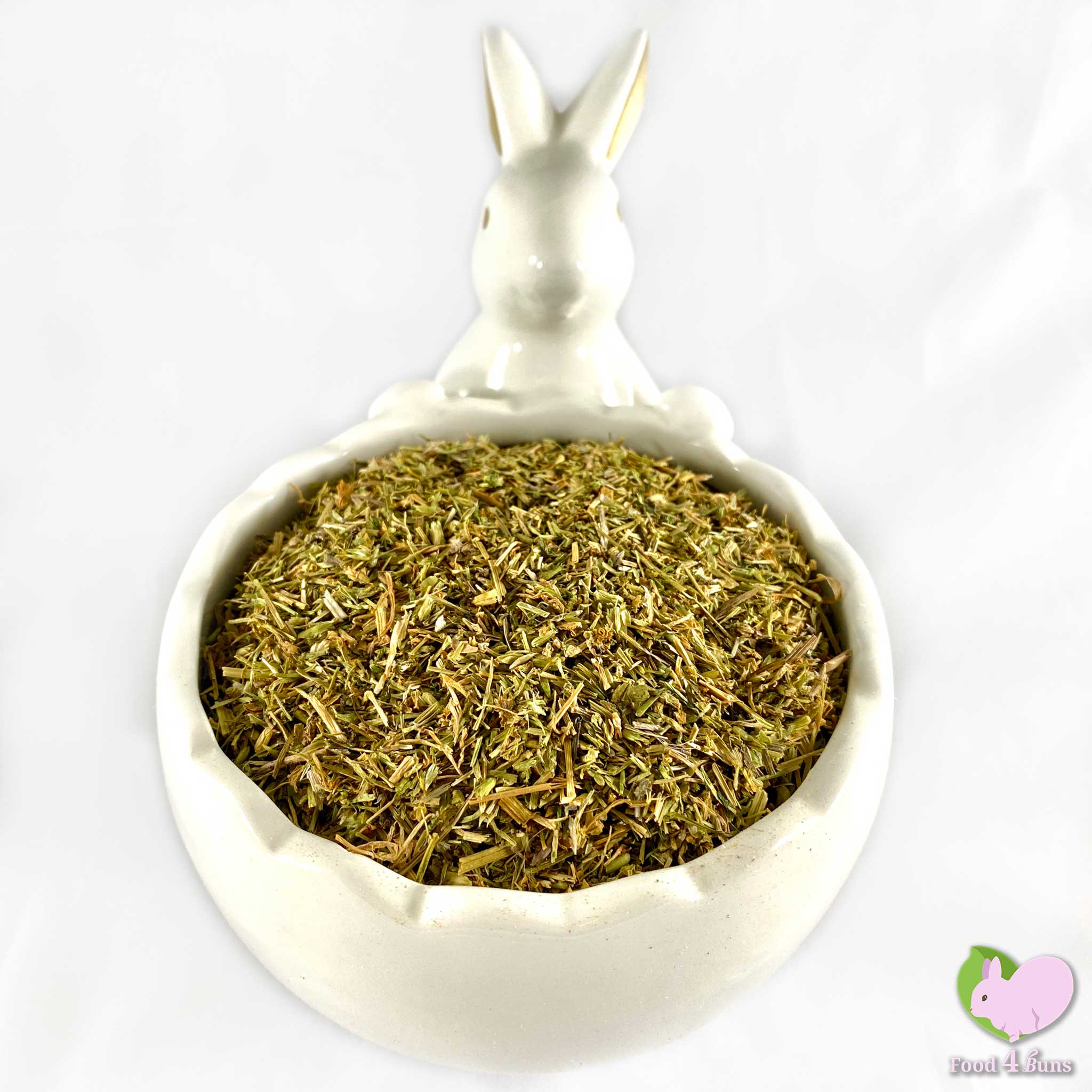
- Introduction
- Similarities and differences between chinchillas and guinea pigs
- Physical characteristics
- Habitat and lifestyle
- Nutritional needs of chinchillas
- High fiber diet requirement
- Specific nutrients needed
- Nutritional needs of guinea pigs
- Differences from chinchillas
- Importance of vitamin C
- Can chinchillas eat guinea pig food?
- Risks of feeding guinea pig food to chinchillas
- Potential benefits
- Alternatives to guinea pig food for chinchillas
- Safe and healthy options
- Homemade chinchilla diet recipe
- FAQs
- Can chinchillas get sick from eating guinea pig food?
- Can guinea pigs eat chinchilla food?
- Is it okay to give guinea pig treats to chinchillas?
- What happens if a chinchilla accidentally eats guinea pig food?
- Are there any long-term effects of feeding guinea pig food to chinchillas?
- Conclusion
Similarities and Differences between Chinchillas and Guinea Pigs:
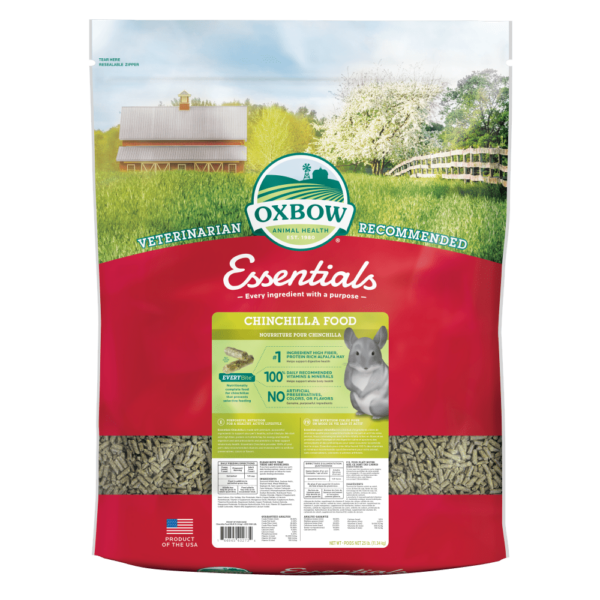
Chinchillas and guinea pigs belong to the same order of rodents, but they have different species. They also have some similarities and differences in their physical characteristics and lifestyle, which can affect their dietary needs.
Physical Characteristics:
Both chinchillas and guinea pigs are small, furry animals with round bodies and short legs. However, chinchillas have thicker fur, a bushy tail, and large ears compared to guinea pigs. Chinchillas also have fur that is denser and oilier because they originate from high altitudes, which helps them to stay warm and dry. Guinea pigs, on the other hand, have smoother and shorter fur that does not require as much grooming.
Habitat and Lifestyle:
In the wild, chinchillas live in the Andes mountains, while guinea pigs are native to South America. This difference in habitat means that chinchillas are accustomed to a colder climate, while guinea pigs prefer warmer temperatures. Similarly, chinchillas are nocturnal, meaning they are most active at night, while guinea pigs are diurnal and more active during the day. These lifestyle differences can affect their dietary needs as well.
Nutritional Needs of Chinchillas:
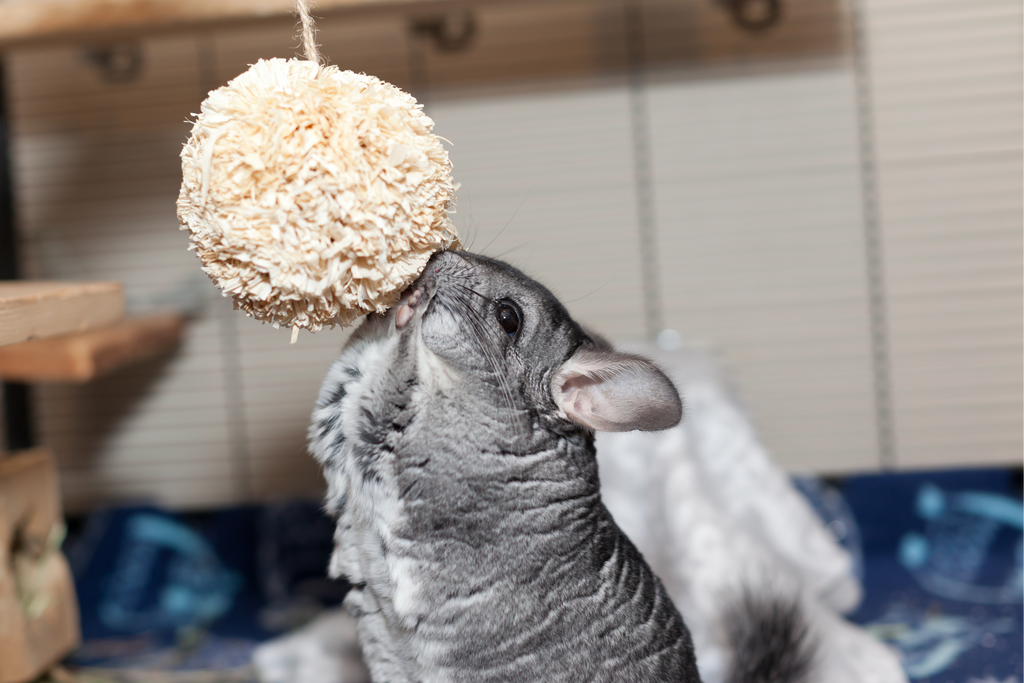
Chinchillas have specific nutritional requirements due to their unique digestive system. In the wild, they mostly eat grasses and hay, supplemented with leaves, twigs, and bark. In captivity, their diet should consist mainly of fresh hay and high-quality chinchilla pellets.
High Fiber Diet Requirement:
One of the essential elements of a chinchilla’s diet is fiber. Their digestive system is designed to process high-fiber foods, and without enough fiber, they can develop digestive problems such as diarrhea and bloating. Fresh hay provides the necessary fiber for chinchillas, and it should make up the majority of their diet.
Specific Nutrients Needed:
Aside from fiber, chinchillas also require other nutrients in their diet to maintain good health. These include protein, fat, and vitamins and minerals such as calcium and phosphorus. However, it is crucial to provide these nutrients in the right amounts, as too much or too little of certain nutrients can lead to health problems. For example, a diet high in fat can cause obesity in chinchillas, which can lead to various health issues.
Nutritional Needs of Guinea Pigs:
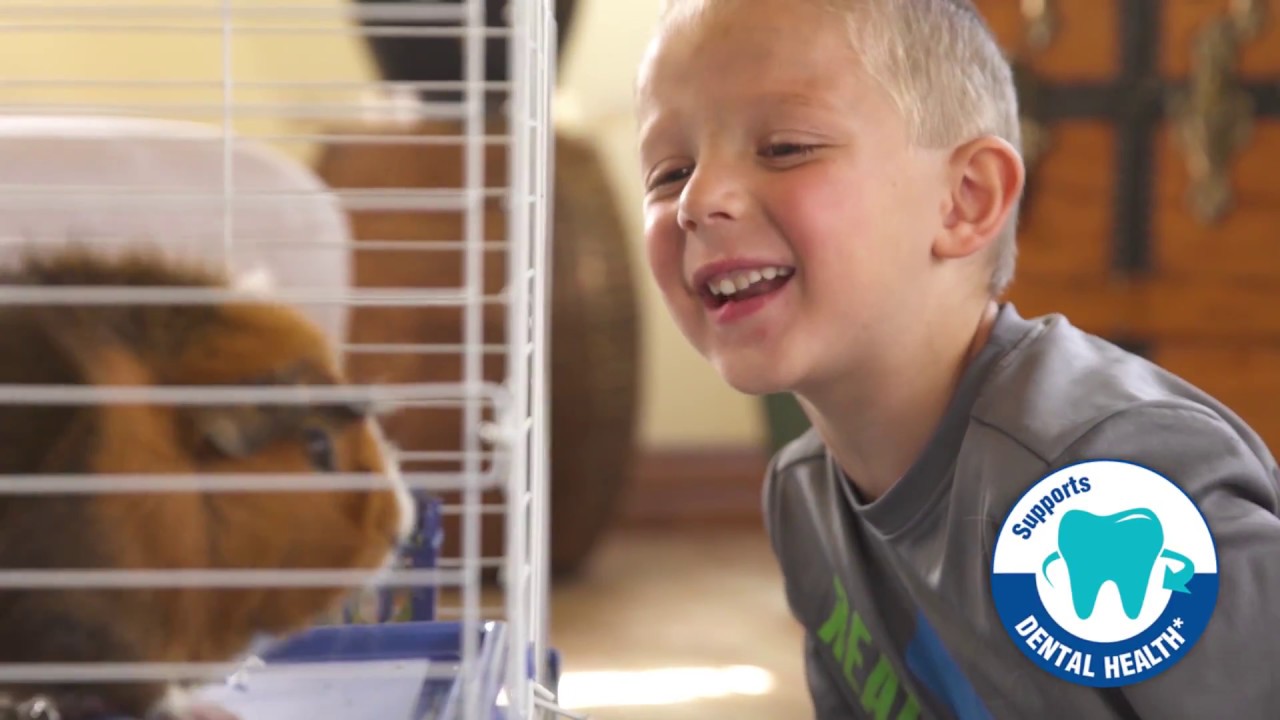
Guinea pigs have different nutritional needs compared to chinchillas. In the wild, they consume mostly grasses and herbs that are high in fiber, similar to chinchillas. However, guinea pigs have an additional dietary requirement that sets them apart from chinchillas – the need for vitamin C.
Differences from Chinchillas:
Unlike chinchillas, guinea pigs cannot produce vitamin C on their own and must obtain it from their diet. This is because they lack an enzyme that is necessary for vitamin C synthesis. A deficiency in vitamin C can lead to serious health problems, including scurvy, joint pain, and even death. Therefore, it is essential to provide guinea pigs with a diet that is rich in vitamin C.
Importance of Vitamin C:
Vitamin C is crucial for maintaining a guinea pig’s overall health. It helps in the formation of collagen, which is vital for healthy skin, bones, and blood vessels. It also acts as an antioxidant, protecting cells from damage. A lack of vitamin C can lead to weakened immune systems, making guinea pigs more susceptible to diseases.
Can Chinchillas Eat Guinea Pig Food?
Now that we understand the differences in the nutritional needs of chinchillas and guinea pigs, let’s address the question at hand – can chinchillas eat guinea pig food? The short answer is no, they should not.
Risks of Feeding Guinea Pig Food to Chinchillas:
Guinea pig food is not designed for chinchillas and does not meet their specific dietary requirements. It may not provide enough fiber, which can lead to digestive problems. Additionally, guinea pig food typically contains higher levels of fat and protein, which can be harmful to chinchillas. Feeding them guinea pig food regularly can result in obesity and other health issues.
Potential Benefits:
While guinea pig food is not suitable as a staple diet for chinchillas, it may have some benefits if given occasionally as a treat. For example, guinea pig food often contains added vitamin C, which can provide a boost to a chinchilla’s immune system. However, these occasional treats should not replace a chinchilla’s regular diet.
Alternatives to Guinea Pig Food for Chinchillas:

If you are looking for an alternative to guinea pig food for your chinchilla, there are some safe and healthy options available. One option is to feed your chinchilla a mixture of high-quality chinchilla pellets and fresh hay. You can also offer them small amounts of fresh vegetables and fruits as occasional treats. However, it is essential to research which fruits and vegetables are safe for chinchillas, as some may be harmful to their digestive system.
Homemade Chinchilla Diet Recipe:
Another alternative to feeding your chinchilla commercial food is to make their food at home. Here is a simple recipe for homemade chinchilla pellets that you can try:
Ingredients:
- 1 cup whole grain oats
- 1/2 cup alfalfa hay
- 1/4 cup ground flaxseed
- 1/4 cup dried dandelion leaves
- 1/4 cup ground timothy hay
- 1/4 cup ground rose hips
- 1/4 cup chamomile flowers
- 1/4 cup dried raspberry leaves
Instructions:
- Grind the oats, alfalfa hay, and flaxseed in a food processor until they resemble coarse flour.
- Mix in the remaining ingredients.
- Store the mixture in an airtight container.
To serve, mix a small amount of the homemade pellets with fresh hay for your chinchilla to enjoy.
FAQs:
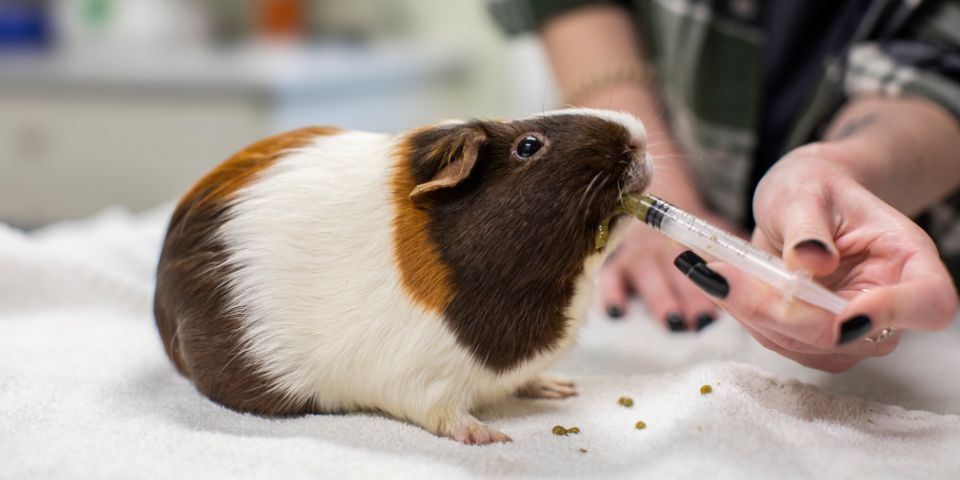
Can Chinchillas Get Sick from Eating Guinea Pig Food?
Yes, chinchillas can get sick if they regularly eat guinea pig food. As mentioned earlier, guinea pig food does not meet their specific dietary needs and can lead to health issues such as obesity and digestive problems.
Can Guinea Pigs Eat Chinchilla Food?
No, guinea pigs should not eat chinchilla food as it is designed specifically for chinchillas and may not provide enough of the essential nutrients that guinea pigs need, such as vitamin C.
Is it Okay to Give Guinea Pig Treats to Chinchillas?
Occasional treats are fine for chinchillas as long as they are safe for their digestive system. However, these treats should not make up a significant part of their diet.
What Happens if a Chinchilla Accidentally Eats Guinea Pig Food?
If a chinchilla accidentally eats guinea pig food, it is unlikely to cause any immediate harm. However, it is best to avoid this situation altogether by keeping the two animals’ food separate.
Are There Any Long-term Effects of Feeding Guinea Pig Food to Chinchillas?
Feeding guinea pig food regularly to chinchillas can lead to long-term health issues, such as obesity and digestive problems. It is important to stick to a balanced and nutritious diet specifically designed for chinchillas to ensure their overall well-being.
Conclusion:
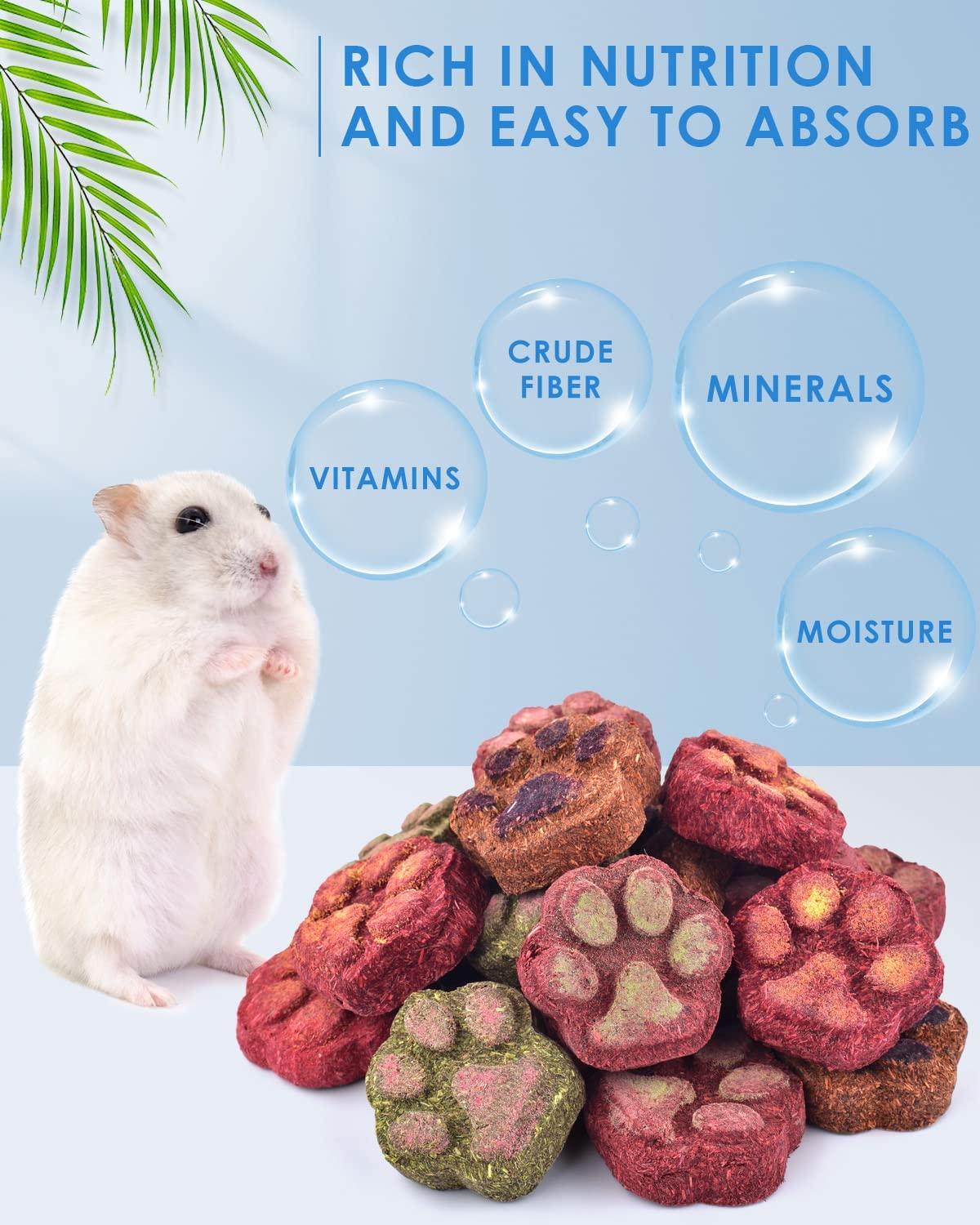
In conclusion, while chinchillas and guinea pigs may have some similarities, they have different nutritional needs. Chinchillas require a high-fiber diet, while guinea pigs need extra vitamin C in their diet. Feeding chinchillas guinea pig food can lead to health problems, and it is best to stick to a diet specifically designed for chinchillas or homemade options. If you have any concerns about your chinchilla’s diet, consult with a veterinarian who specializes in exotic pets. Your furry friend’s health should always be a top priority!
